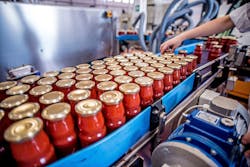How FSMA Rule 204 will impact food production operations
The Food Safety Modernization Act (FSMA) Rule 204, set to be enforced in 2026, requires food manufacturers to implement advanced traceability systems, which directly impacts how machinery in production environments must be designed and integrated.
Controls engineers tasked with building equipment for these factories, Automation World reported, must ensure that their machines can capture, process, and store the required data at each critical tracking point. This means integrating sensors, automation systems and real-time data collection solutions to record and manage information such as lot numbers, locations and dates, enabling fast identification and removal of contaminated products.
A FSMA Rule 204 overview
- Objective: Strengthen food safety by enhancing traceability and record-keeping across the supply chain.
- Implementation: Manufacturers must document specific data elements for critical tracking events to enable rapid identification and removal of contaminated food.
The transition to digital record-keeping systems, leveraging automated data capture, will also be crucial for ensuring compliance. Additionally, machinery designed for food processing environments must align with the new operational focus on predictive analytics and AI-based risk management to improve efficiency and compliance.
Controls engineers will play a key role in implementing advanced technologies like machine learning to detect and resolve potential issues before they arise. To learn more about FSMA Rule 204, read the full article from Automation World, a Control Design partner publication.
